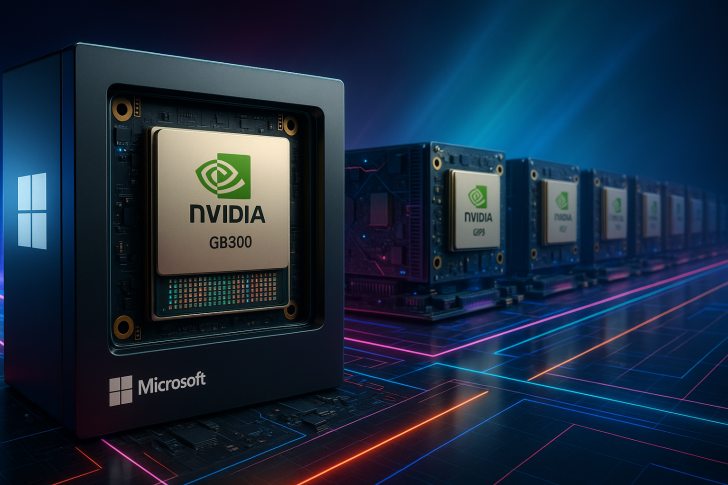● Microsoft has confirmed it will ship 60,000 Nvidia GB300 AI chips to the UAE under a government-approved export deal, according to Blockchain Daily News. The decision comes at a time when semiconductor exports are under heavy scrutiny, with Donald Trump publicly warning against sending advanced AI hardware overseas.
● The export is part of a regulated U.S. program designed to build AI partnerships with allied countries while following Commerce Department rules. But critics worry that even approved shipments could pose security risks. Trump's concerns reflect broader anxiety that sharing cutting-edge AI tech might strengthen rival nations and spark a wave of protective trade policies. Beyond politics, stricter export rules could hurt global AI supply chains and slow down innovation.
● The deal, worth hundreds of millions of dollars, fits Microsoft's plan to grow its Azure AI cloud services in the Middle East. Experts say blocking these exports could cost American companies billions. Some lawmakers have suggested taxing overseas chip profits more heavily instead of banning exports entirely—trying to protect both business interests and national security.
● This move is part of a bigger picture: Gulf countries are pouring money into their own data centers and AI infrastructure. If the U.S. tightens restrictions too much, American firms risk losing ground to Chinese and European competitors who are already courting Middle Eastern buyers. The U.S. leads in AI hardware exports now, but the ongoing policy debate could shift that balance.
● As Blockchain Daily News reported, "the U.S. government approved the shipment under a strategic technology cooperation framework,"—showing that collaboration continues despite political tensions. This situation highlights how AI chip exports have become a key battleground in the race for global tech dominance.
 Peter Smith
Peter Smith

 Peter Smith
Peter Smith


